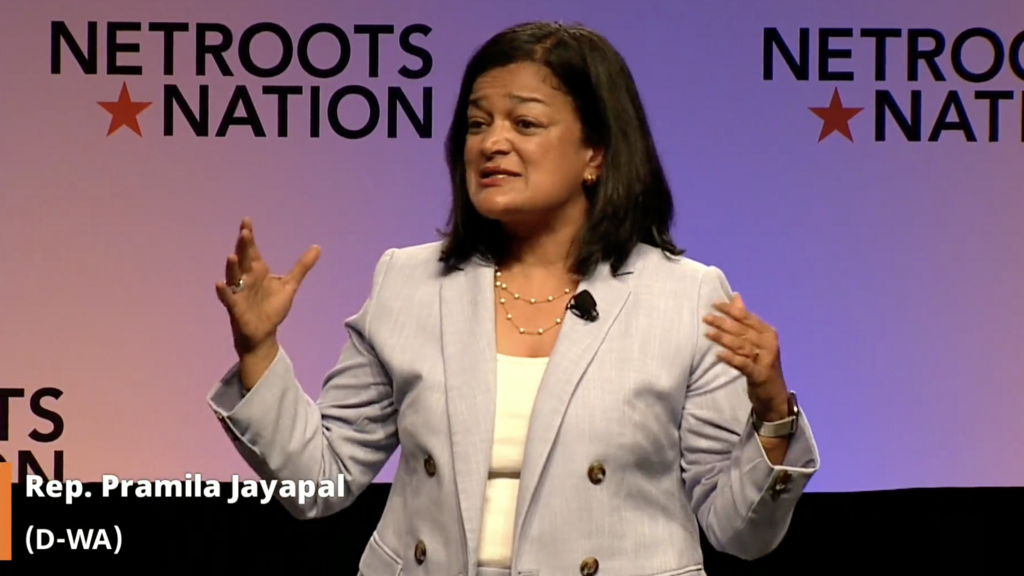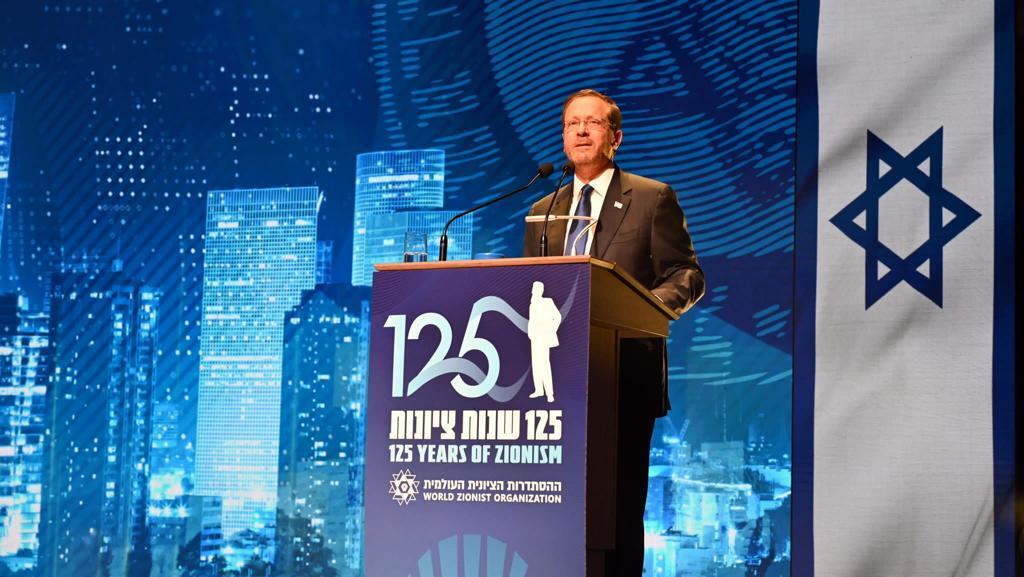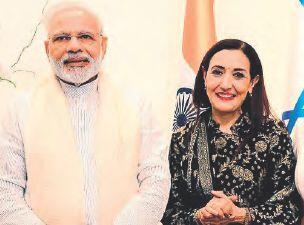Getting your Trinity Audio player ready...
On Wednesday, President Isaac Herzog will address a joint meeting of the U.S. Senate and House of Representatives to commemorate Israel’s 75th birthday and celebrate the strong bonds of friendship and shared values between the two allies.
To the surprise of no one, Ilhan Omar, a Democratic congresswoman from Minnesota, was the first member of the Congressional Progressive Caucus to declare, via Twitter, “There is no way in hell I am attending.”
3 View gallery


U.S. Rep. Pramila Jayapal called Israel a racist state before backtracking
(Screenshot)
No big shock coming from a woman who, as a newly minted member of the House of Representatives, used anti-Semitic tropes to explain Congress’s historically strong support for Israel.
Not to be outdone, Cori Bush, a Democratic representative from Missouri, posted on her Twitter account that Israel was “responsible for enforcing an apartheid” system and “rampantly abusing the rights of Palestinians.”
Bush also wrote that the U.S. Congress “should not be giving a platform” to the president of a nation that “shows no respect for human rights.”
Two other progressive caucus members, Alexandria Ocasio-Cortez and Jamaal Bowman, both Democratic representatives from New York, joined the tiny me-too movement.
That brings us to the fourth progressive caucus member to announce her boycott of President Herzog’s speech, Pramila Jayapal, a Democrat from Washington.
Seeking to mollify a group of pro-Palestinian protesters, Jayapal declared on Saturday: “We have been fighting to make it clear that Israel is a racist state, that the Palestinians deserve self-determination and autonomy.”
The next day, Jayapal partially recanted, saying she had meant to say that the Israeli government included extreme, right-wing leaders promoting racist policies.
While apologizing for calling Israel a “racist state,” she did say, “I do, however, believe that Netanyahu’s extreme right-wing government has engaged in discriminatory and outright racist policies and that there are extreme racists driving that policy within the leadership of the current government.”
Just three weeks ago, however, Jayapal went to great lengths to explain why she would, in fact, meet India’s Prime Minister Narendra Modi during his visit to Washington, including at his June 9 speech before another joint Senate and House of Representatives meeting.
3 View gallery


President Isaac Herzog at World Zionist Congress marking 125th anniversary in Basel
(Photo: World Zionist Organization, Courtesy)
It is no secret that Prime Minister Modi is a deeply controversial figure. Until 2014, he was denied a visa to the U.S. for “severe violations of religious freedom.” He leads the Hindu nationalist Bharatiya Janata Party and has been accused of tolerating and encouraging anti-Muslim views and policies.
Indeed, the United States Commission on International Religious Freedom, a congressional-mandated bipartisan group of which I currently serve as chair, urged the U.S. to list India as a “country of particular concern” for its “systematic, ongoing and egregious” oppression of religious groups, including Muslims, Christians, Sikhs, Dalits, and Adivasis.
Our commission is charged with advising President Joe Biden, U.S. Secretary of State Antony Blinken, and the U.S. Congress on religious freedom and human rights in 28 countries that are the most egregious violators: 15 countries of particular concern and 13 on a watchlist for lower-level violations.
However, our call to list India was overridden by the State Department. Prime Minister Modi, by all accounts, had a very successful visit to Washington.
On June 23, Jayapal – who was born in India – acknowledged India’s serious human rights problems, including government attacks on journalists and civil society, along with discrimination against gays, lesbians and members of religious minorities.
Despite these problems, Jayapal said, it had been vital for her to attend Modi’s speech and his other U.S. events. Modi’s visit, she explained, was a “critical moment for engagement” between “flawed democracies.”
Fair enough.
Like India, however, Israel is also a flawed democracy. It has its problems, just like other democracies worldwide.
Congresswoman Jayapal chose to “critically engage” with the flawed democracy she has personal ties with but to shun interaction with the flawed democracy that Jewish Americans, along with many others, feel strongly about.
Any way you say it, this spells h-y-p-o-c-r-i-s-y.
First published: 21:28, 07.18.23


